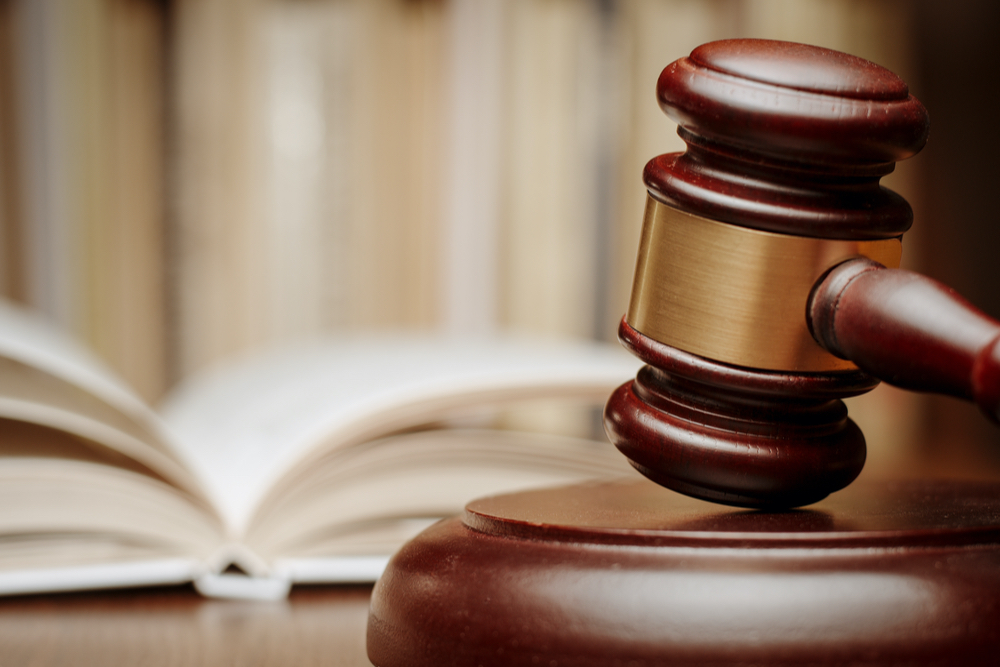By Christine Sexton, The News Service of Florida
TALLAHASSEE — Legislative leaders announced Thursday they have an agreement on COVID-19 liability protections for businesses, nursing homes and other health-care providers and that a bill should be headed to Gov. Ron DeSantis’ desk late next week.
Senate President Wilton Simpson, R-Trilby, and House Speaker Chris Sprowls, R-Palm Harbor, said the House would accept a proposal (SB 72) that the Senate amended and passed Thursday in a 24-15 vote along almost straight party lines. Sen. Linda Stewart, D-Orlando, was the only Democrat who voted for the measure.
“The speaker has worked very hard in helping form this legislation and his team in the House of Representatives. I think we are hopeful (the House) will pass that bill rather than bounce it back,†Simpson told reporters.
At a separate press availability. Sprowls said the House had worked closely with the Senate and that the measure that passed the Senate was a “great product.â€
“We anticipate picking up that bill, passing it and getting it to the governor’s desk as soon as possible,†the speaker said, adding, “They have made some amendments based on our negotiations, so this was a negotiated product with the Senate. The amendments that they did in their health care bill was something we chatted about, that we came to an agreement on.â€
The bill, sponsored by Sen. Jeff Brandes, R-St. Petersburg, offers protections from liability related to the COVID-19 pandemic to all businesses, from general stores to nursing homes.
The measure would require that all COVID-19 lawsuits be pled with particularity. For personal injury suits that don’t allege medical malpractice or violations of nursing-home resident rights, plaintiffs would be required to have state-licensed physicians sign affidavits attesting that the defendants caused the plaintiffs’ injuries or damages.
If courts determine that defendants made good-faith efforts to substantially comply with government-issued health standards or guidance, the defendants would be immune from liability.
In COVID-19 medical malpractice claims or nursing home-related claims, plaintiffs would not need to obtain physician affidavits.
Plaintiffs would have to prove that health care providers’ actions were grossly negligent. Otherwise, health care providers who substantially complied with authoritative or applicable government-issued health standards or guidance related to COVID-19 would have immunity.
Before passing the bill, the Senate approved an amendment by Brandes that made several changes. That included deleting part of the bill that would have allowed businesses to challenge that they couldn’t substantially comply with standards due to “widespread shortages of necessary supplies, materials, equipment, or personnel.â€
Also as amended, the bill would apply to COVID-19 related claims filed within one year of the bill becoming law.
The Senate debated — and shot down — a number of attempts by Democrats to change the bill.
For example, Sen. Perry Thurston, D-Fort Lauderdale, filed amendments that would have changed workers’ compensation insurance laws to include a presumption that a wide range of health-care professionals who test positive for COVID-19 contracted it at work. The amendment would have applied to physicians, nurses, dentists, emergency medical personnel and people who work at clinical labs, doctors’ offices, hospitals and nursing homes.
But Brandes opposed the amendments, saying that the workers’ compensation system is effective and that claims should be considered separately.
Thurston also tried to limit protections afforded to the long-term care industry, saying that the state should not protect facilities that had been sanctioned by the state or federal government in the prior three years.
The House this month approved a bill (HB 7) that would help shield businesses from COVID-19 lawsuits but has dealt with health-care providers in a separate bill (HB 7005). But the Senate’s passage of its combined bill Thursday — and the announcement of a deal with House leaders — was a major victory for business and health-care groups.
“Today’s passage by the Senate of the combined business and health care COVID-19 liability protections legislation is another supportive step in the continued relaunching of Florida’s economy,†Florida Chamber of Commerce President and CEO Mark Wilson said in a prepared statement. “The bill provides much needed certainty to job creators that if they are doing their part to keep employees, customers and patients safe, they will not be party to frivolous litigation.â€
Senate Minority Leader Gary Farmer, D-Lighthouse Point, said it would be tough to sue a non-health care business for COVID-19 because of the difficulty in proving that plaintiffs were infected while at the locations.
But granting all long-term care facilities the protections, when their doors were closed to outside visitors for months during the pandemic and residents were banned from leaving the facilities, was another story, Farmer said.
“It’s just wrong,†Farmer, an attorney, said. “It’s a bridge too far.â€
